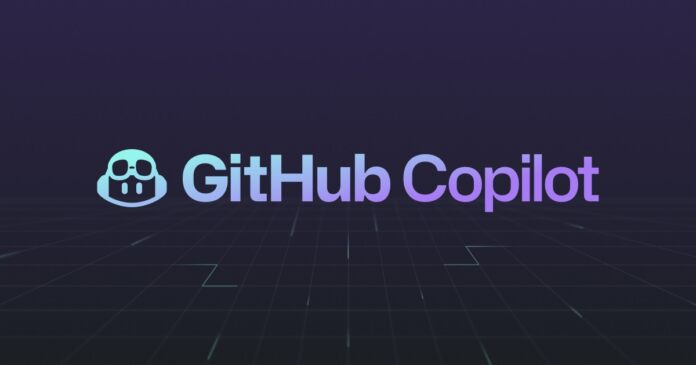Despite the widespread adoption of Microsoft's GitHub Copilot, the feature faces significant financial challenges. The Wall Street Journal reports that while over 1.5 million individuals have embraced the service, contributing to nearly half of the code for many users, Microsoft has been incurring losses. Copilot on GitHub has a subscription charge of $10 per month or $100 annually. Students and recognized open-source project owners can access it for free.
High-cost Operations Cause for Losses
The appeal of GitHub Copilot, which lies in its ability to significantly reduce programming effort, comes at a financial cost. Individuals are charged $10 a month, yet Microsoft lost an average of more than $20 per month for each user in the initial months of this year. Some users have even cost the company up to $80 a month.
The tech industry has seen a boom in generative AI, with companies like NVIDIA reaping substantial benefits. NVIDIA's profits have soared due to the increasing demand for its GPUs, especially from companies like Microsoft for data centers. This surge in demand has significantly bolstered NVIDIA's stock value.
However, Microsoft's challenges in monetizing its AI services, such as GitHub Copilot, stand in stark contrast. A joint project between Microsoft and OpenAI that uses GPT-4 to generate code suggestions based on users' inputs. GitHub Copilot is powered by OpenAI Codex, a generative pre-trained language model created by OpenAI. Earlier this year, GitHub showed its future vision with GitHub Copilot X, which integrates with OpenAI's GPT-4.
Microsoft's Challenges in Monetizing AI Services
Microsoft's dilemma revolves around balancing the operational costs of such advanced AI tools with their pricing models. The current subscription rates do not cover the associated expenses. However, there's hope for the future profitability of GitHub Copilot and similar tools if computing costs decrease. Microsoft is contemplating a price increase for its upcoming AI software upgrades. The Microsoft 365 suite will have an additional $30 monthly charge for its AI-enhanced version, set to launch on November 1, targeting enterprise users.
Furthermore, Microsoft is exploring cost-effective methods to operate its AI services. One potential strategy involves manufacturing its own AI GPU, which would eliminate the need to purchase from NVIDIA. This new AI chip is anticipated to be unveiled at the Ignite conference on November 14. GitHub Copilot was something of a trail-blazer, becoming the first user ready AI coding tool. Since then, plenty of similar solutions have arrived from various tech companies.
Major AI Coding Assistance from Tech Companies
- Another tool that got an equity investment from Microsoft is Builder.ai, an AI software firm that offers Natasha AI product manager through Microsoft Teams. Builder.ai and GitHub Copilot are two different types of AI-powered tools for software development. Builder.ai is a no-code platform that lets users make apps by picking from various templates and features, without writing any code.
- Google also partnered with Replit to offer Ghostwriter, an AI tool that helps developers write code. The partnership also gives Replit developers access to Google Cloud and vice versa. Moreover, Google brought code generation and debugging to its Bard AI chatbot. Users can write their coding questions or requests in natural language, and Bard will generate multiple drafts of possible responses for them to pick from.
- Amazon launched CodeWhisperer, a free AI tool that competes with GitHub Copilot. It works with Python, JavaScript, and Java languages and integrates with popular IDEs like PyCharm and Visual Studio Code. It helps users write code faster and easier. CodeWhisperer is integrated with AWS services and tools, such as Lambda, CloudFormation, and Amplify.
- In May, Meta introduced CodeCompose, an AI-powered tool that offers code suggestions for various languages including Python, as developers type in Integrated Development Environments (IDEs) like VS Code. The tool can utilize its understanding of the surrounding code to provide enhanced suggestions.
- Chinese company Baidu is also competing in this space with its own coding AI. Comate is compatible with mainstream Integrated Development Environment (IDE) frameworks and supports more than 30 programming languages, with a strong emphasis on C/C++, Python, and Java.
- In July, Stack Overflow introduced its OverflowAI coding assistant. OverflowAI is a web-based tool that allows users to input natural language queries and get code snippets generated by a deep learning model trained on millions of Stack Overflow posts and other sources. The platform supports various programming languages, such as Python, C#, Java, and SQL.
- Hugging Face has been positioning itself as a leader in the AI market and the company's SafeCoder reflects the ongoing success. Launched in August, the tool ensures that code remains within the Virtual Private Cloud (VPC) during both training and inference stages. The design of SafeCoder allows for on-premises deployment, giving enterprises ownership of their code, similar to a personalized GitHub Copilot.






